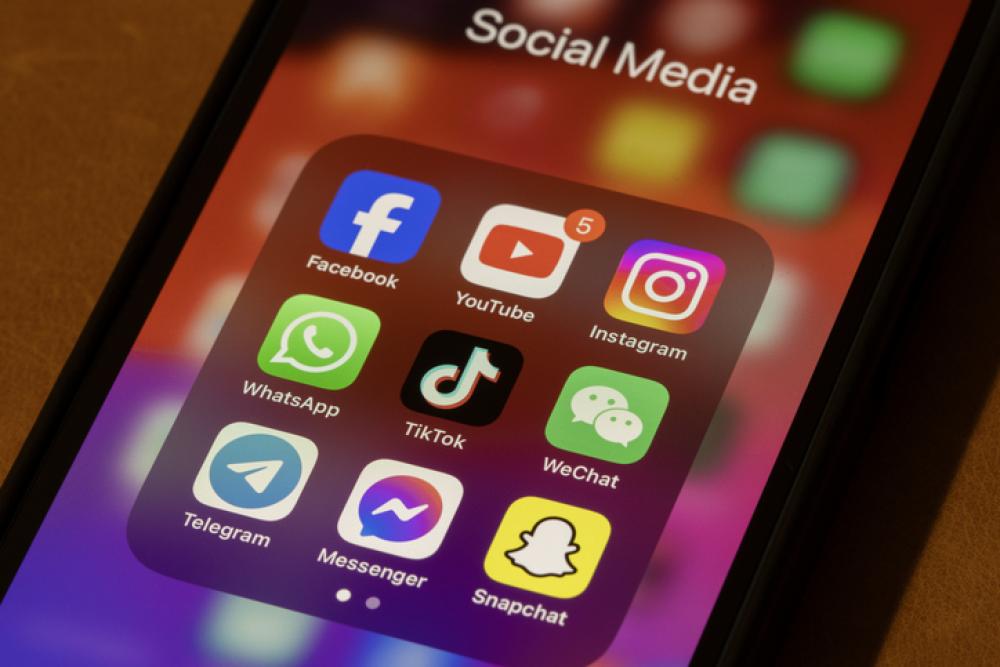The FTC has plans for adding psychologists and pediatricians to its staff to help on issues related to social media use and child mental health, Commissioner Alvaro Bedoya said Monday. The agency wants to emulate the U.K.’s Competition and Markets Authority, which has interdisciplinary teams within the organization, he said during State of the Net conference. The agency plans to add the specialists in the fall, he said. Based on social science research, three things are driving “teen mental health” concerns online, he said: social media content, extended engagement tools and features that enable user harassment.
The Utah Commerce Department received backlash from the communications industry and other groups about age-verification methods proposed in rules for implementing the 2023 Utah Social Media Regulation Act. The department’s Consumer Protection Division last week sent us written comments received by its Feb. 5 deadline on October's proposed rules.
A Virginia Senate panel cleared kids’ privacy and social media bills Wednesday. The General Laws and Technology Committee voted 14-0 for SB-359, prohibiting social media operators from providing an “addictive feed” to users younger than 18 without verifiable parental consent. The bill defines an addictive feed as “a website, online service, or online or mobile application, or a portion thereof, in which multiple pieces of media generated or shared by users of a website, online service, or online or mobile application, either concurrently or sequentially, are recommended, selected, or prioritized for display to a user based, in whole or in part, on information associated with the user or the user's device.” The committee voted 15-0 for SB-361, which would add children-specific protections to the state’s comprehensive consumer privacy law. It would prohibit data controllers from selling a child’s data or using it for targeted advertising or profiling. The House approved the similar HB-707 on Tuesday (see 2402070063).
A Better Business Bureau National Advertising Review Board panel recommended Thursday that Mint Mobile change some of its ads and promotions in response to a Verizon complaint. In ads for Mint’s $15 monthly promotional plan for unlimited service, “it failed to consistently, clearly and conspicuously disclose that consumers are required to prepay the entire $45 for three months of service,” the panel found. Moreover, Mint should discontinue a claim “that it ‘cut out the cost of retail service and passed those sweet savings directly to you’ because it did not provide evidence demonstrating that it ‘passes along’ any cost savings to consumers,” the panel said. It found fault with some of Mint’s claims on social media against Verizon. Mint said it would comply with the panel’s recommendations, "although it disagrees with the panel’s recommendation regarding certain social media ... claims," the release said.
The FCC seeks the dismissal of the petition for review of Maurine and Matthew Molak to vacate the FCC’s Oct. 25 declaratory ruling authorizing funding for Wi-Fi service and equipment on school buses under the commission’s E-rate program (see 2312200040), according to the commission’s motion Tuesday (docket 23-60641) at the 5th U.S. Circuit Court of Appeals.
The Florida Senate's version of a bill banning kids younger than 16 from having social media accounts cleared the Judiciary Committee on Monday. The panel voted 7-2 for Sen. Erin Grall's (R) SB-1788. It shares language with the House-approved HB-1, including prohibiting children from having accounts even with parental consent. However, the Senate bill wouldn't require social websites to disclose social media's possible mental health issues to those 16-18. A bipartisan majority in the House supported HB-1 last month (see 2401240079). Also, the Judiciary Committee voted 9-0 for Grall's SB-1792, which would require strict age verification for porn websites. It’s similar to HB-3, which unanimously passed the House (see 2401250017).
Existing law needs updating to protect artists and individuals from fake AI-generated content, House Intellectual Property Subcommittee Chairman Darrell Issa, R-Calif., said Friday during a hearing in Los Angeles.
A state bill forcing privatization of a municipal broadband network in Frankfort, Kentucky, could debut shortly, Frankfort Plant Board (FPB) officials said in interviews. FPB is fighting the legislation, which is expected to be written by state Sen. Gex Williams (R). The bill, if and when it's introduced, would be part of a trend of industry attacks on muni broadband, said Gigi Sohn, American Association for Public Broadband (AAPB) executive director. Some argue private investment is superior to public broadband, while others believe certain conditions prevent making a true comparison between municipal and private networks. Still others think a municipal network is appropriate only in areas where private companies opt out.
South Carolina age-verification bills won House approval by wide margins Wednesday. The House voted 105-1 to pass H-4700, which would require parental consent for minors younger than 18 to access social media. The House voted 104-1 to pass H-3424, meant to keep kids off pornographic websites. The Judiciary Committee last week approved the bills (see 2401230062), which go next to the Senate. Rep. Justin Bamberg (D) voted no on both bills. In Utah the same day, the Senate Judiciary Committee voted 4-0 to clear a bill (SB-104) that would require tablet and smartphone makers to automatically turn on content filters for minors.
Minnesota should ban dark patterns from social media platform design, Attorney General Keith Ellison (D) recommended in a report released Thursday. Minnesota’s Legislature in 2023 directed Ellison to deliver the report by February. Examples of dark patterns include features that optimize the amount of time users spend on platforms, auto-load content and notifications meant to maximize engagement, said Ellison. He highlighted the impact on teens and adolescents: “I will continue to use all the tools at my disposal to prevent ruthless corporations from preying on our children.”
